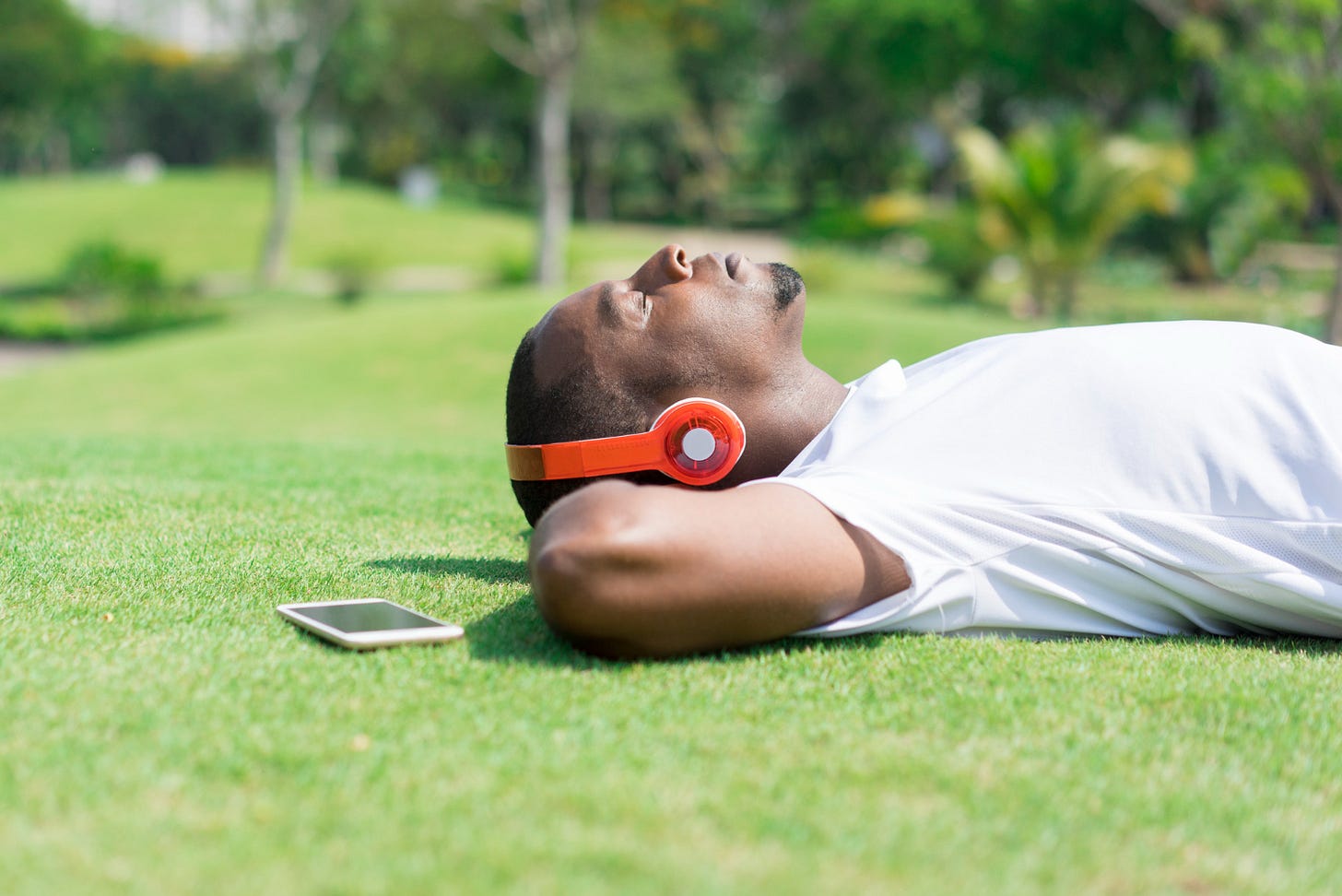Rest is Productive and Might Just be the Best Thing for Your Growth
Discover why rest is productive and how slowing down can fuel creativity, boost growth, and improve your overall well-being.

Have you ever had that colleague who never takes breaks or goes on leave, and they wear it like a badge? Some never even take off days when they are ill. Yeah, those ones—seems like we all know one or two.
In a world that glorifies hustle culture and constant motion, rest can feel like a luxury, or worse, a weakness. But the truth is, rest is not a pause from productivity; it's a vital part of it. In fact, some of the most successful individuals and high-performing teams prioritize rest, not despite their goals, but because of them.
If you're serious about sustainable growth—whether it's personal, professional, creative, or even financial—it's time to reframe how you view rest. Here's why rest is deeply productive and how to embrace it as a powerful tool for growth.
Understanding the True Meaning of Productivity
Productivity isn't about how much you cram into your day. It's about progress, impact, and sustainability. Real productivity means moving forward consistently, not burning out in a blaze of overwork.
Rest plays a critical role here. When you’re rested, you make sharper decisions, think more creatively, and show up with energy. Without it, even your best efforts start to feel like you’re pouring from an empty cup.
The Science of Rest and Performance
Neuroscience shows us that rest isn't just good—it’s essential. Sleep, for example, strengthens memory, consolidates learning, and improves problem-solving skills. Short breaks during the day help restore focus and prevent mental fatigue. And even non-sleep rest, like quiet reflection or nature walks, can lower cortisol and enhance your mood and clarity.
Think of your brain as a muscle. You wouldn’t lift weights for 8 hours straight—why expect your mind to function well without breaks?
Types of Rest and How to Use Them
Rest isn’t just about sleeping or doing nothing. There are multiple dimensions of rest that nourish different aspects of your life:
Physical rest: Sleep, naps, stretching, bodywork
Mental rest: Quiet moments, journaling, meditation
Emotional rest: Setting boundaries, expressing yourself, therapy
Creative rest: Stepping away from screens, enjoying art or nature
Social rest: Taking breaks from draining interactions or being intentional about quality connections
Sensory rest: Reducing exposure to noise, lights, screens, and overstimulation
Spiritual rest: Finding peace, purpose, and a sense of connection beyond the physical or mental, often through practices like prayer, meditation, or reflection.
Identify which types of rest you’re neglecting and start intentionally adding them to your routine.
When to Rest: Signs You’re Running on Empty

You don’t have to wait until burnout hits to justify rest. Here are some early red flags:
You’re constantly tired, even after sleeping
Your creativity is dried up
Small tasks feel overwhelming
You’re irritable or emotionally reactive
You’re busy all day but getting very little done
Treat these signs as a cue—not to push harder—but to pause and recharge.
Rest as a Growth Strategy
Do you ever wonder why your best ideas come when you’re taking a walk, a shower, or doing number 2? Sometimes it even comes when you’re just about to sleep at night.
Why is that? It’s because rest creates space for your subconscious mind to make connections and solve problems.
Want to improve your career, relationships, finances, or wellbeing? Start resting with intention:
For your career: Schedule “deep work” sessions after a good night’s sleep or a break
For your health: Include rest days in your fitness routine to avoid injury
For learning: Use rest to consolidate information through techniques like spaced repetition
For creativity: Step away from your work and allow time for inspiration to find you
Practical Tips for Building Rest into Your Life
Making rest part of your routine doesn’t mean overhauling your life. Here are easy ways to integrate rest:
Time-block rest just like meetings
Add 5-minute microbreaks every hour
Try a digital detox evening once a week
Set boundaries at work and protect your weekends or off-hours
Don’t feel guilty for doing “nothing”—reframe it as doing “something essential”.
Reframing the Mindset: Rest is Not Laziness
Let’s be clear—rest is not quitting. It’s preparing to go again with full capacity.
High achievers in every field—from athletes to entrepreneurs—know the value of recovery. Rest is the reset button your brain and body need. It’s where reflection, healing, and clarity happen.
So the next time you feel guilty for resting, remind yourself: rest is not a reward you earn—it’s a requirement you need.
Rest is the Shortcut
Burnout is expensive. Fatigue slows you down. Creative blocks are frustrating. The smarter path? Rest.
If you're looking to make the most of your rest and reset for the months ahead, our magazine - Launchpad is packed with powerful insights, inspiring stories, and practical tools to help you grow — personally and professionally.
Download your free copy now and take the next step in your journey to intentional productivity. Download here.


